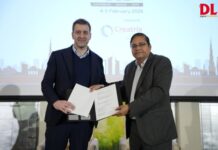
The specter of mathematics, traditionally a daunting subject, has haunted students for generations. A staggering 82% of students in Classes 7-10, according to a 2021 survey, admit to feeling “fearful” of math. To confront this issue head-on, schools and educators are now embracing revolutionary new-age methodologies that go beyond the conventional and promise a transformative learning experience.
Inculcating New Age Methodologies
Modern classrooms are not just spaces for teaching math; they are hubs of transformative learning. Envision a scenario where students aren’t passive observers but active participants, immersed in a world of colorful manipulative, and engaging activities. This paradigm shift is powered by hands-on tools that transcend the traditional boundaries of teaching aids. They become keys unlocking the latent potential within every student.
Practical Demonstrations and Real-Life Connections
At the heart of this evolution lies a shift from abstract to concrete. New methodologies are infused with practical demonstrations, ensuring students no longer stare at obscure numbers but actively engage with math through experiments and real-world problem-solving. Take, for instance, the teaching of geometry, which moves beyond rote memorization to encompass creating models, exploring spatial relationships, and discovering the geometry inherent in everyday life.
Math Kits: A Visual and Tactile Learning Experience
Enter the realm of math kits – treasure troves of visual and tactile learning experiences. These kits are curated with tools and materials designed to demystify abstract concepts. From counting blocks for the youngest learners to geometric shapes and algebraic tiles for older students, these kits redefine the landscape of math education. When students can touch, see, and manipulate mathematical ideas, fear dissipates, replaced by a profound curiosity and understanding.
Teacher Training for Effective Implementation
The success of these methodologies hinges on the skill set of our educators. Teachers are no longer just instructors; they are architects of learning experiences. Equipped with specialized training, they delicately dissect complex problems into more manageable components. The emphasis is on personalized attention, recognizing the unique needs of each student, particularly those grappling with math anxiety. Teachers guide students through the learning process, providing continuous support and encouragement.
Empowering Weak Students through Practice
Acknowledging the diversity in learning paces, teachers are providing additional support to students who need it the most. The focus is on empowering rather than leaving behind. Weak students are not merely assisted to pass exams but are given the tools and resources to develop a genuine understanding and appreciation for math.
Real-Life Integration and Practical Approach
This transformative approach extends beyond the classroom. It integrates math into daily life, emphasizing its practical application. Students no longer perceive math as an isolated subject but as an indispensable tool with real-world implications. This not only aids in understanding complex concepts but also in debunking the myths surrounding math.
The Role of Positive Reinforcement
Beyond techniques and methodologies, positive reinforcement plays a pivotal role. Encouraging words, acknowledgement of progress, and celebration of achievements create a positive atmosphere that enhances the learning experience. This culture of positivity is woven into the fabric of classrooms, creating an environment where students feel supported and encouraged to explore the vast landscape of mathematics.
Conclusion
The integration of new-age math methodologies into the Indian school curriculum represents not just a shift in teaching techniques but a fundamental transformation of mindsets. By emphasizing practical demonstrations, real-life connections, comprehensive teacher training, and positive reinforcement, schools are succeeding in eradicating the fear of math. In this transformative journey, students are not just learning math but becoming mathematicians – confident, curious, and unafraid.
By, Shlok Srivastava, VP Academics, Orchids The International School






















